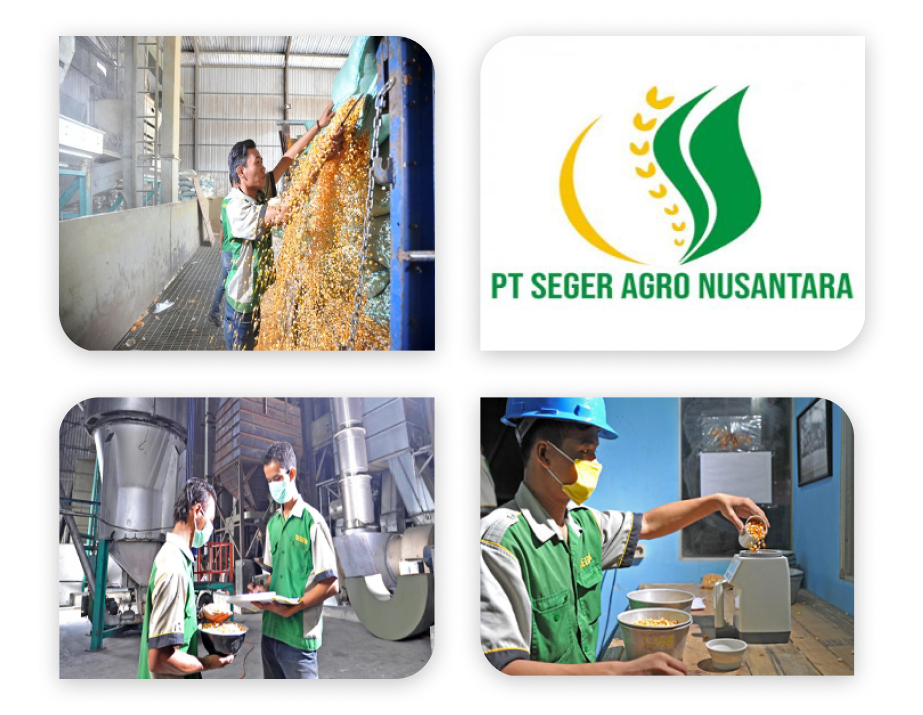WORKING
GROUP - CORN
Context:
Indonesia is a significant corn producer, primarily used for animal feed and food processing. The industry faced hurdles such as fluctuating yields due to weather conditions and the need for improved infrastructure in rural areas. Additionally, there was a growing focus on food security, leading to initiatives aimed at increasing domestic corn production. The government had introduced policies to support corn farmers, such as subsidies and incentives for seed distribution. However, the industry still had room for improvement in terms of increasing productivity, improving quality, and reducing import dependency.
Corn Working Group is, a dynamic coalition comprising private sector leaders, governmental bodies, grassroots organizations, and smallholder corn farmers, is fervently dedicated to elevating both productivity and livelihoods within the corn industry through sustainable practices. Corn WG overarching mission is to foster inclusive growth by empowering smallholders with the tools, knowledge, and resources needed to enhance corn production while preserving the environment. Through initiatives encompassing advanced farming techniques, access to quality seeds, soil conservation practices, and equitable market opportunities, the partnership not only seeks to increase smallholders' yields and income but also champions responsible and eco-friendly corn farming. Corn WG serves as a beacon of collaboration and commitment, exemplifying the transformative power of public-private partnerships in driving positive change, securing the future of corn farming, and uplifting rural communities in a sustainable and equitable manner.
Activities :
- - Delivering subsidized fertilizer for corn in West Nusa Tenggara, as well as bundled services of technology, micro loans, financial literacy trainings in West Nusa Tenggara.
- - Leverage access of hybrid corn in Madura, East Java to increase productivity.
Impact :
- - 537.832 farmers participating
- - 60.081 ha of land
- - 21% smallhorders has access to capacity building
- - Productivity around 7,5 ton /ha
- - Average Income around IDR 1.182.555/month
CASE STUDY - CORN - TRIPUTRA GROUP (PT. SEGER AGRO NUSANTARA)

Established in 2009, PT Seger Agro Nusantara (SAN) is a leading food commodities trader in Indonesia, specializing incorn, soybean, and other commodities. PT SAN factories andwarehouses spread across several islands with sales coverageall over Indonesia. The Partnership Program was started at2018 with the objectives to increase corn productivity and newcorn field expansion through inclusive closed-loop model.
BEFORE AND AFTER
INCLUSIVE CLOSED LOOP IMPLEMENTATION
| Indicator | Before | After |
|---|---|---|
| Production/Productivity | Low farmers productivity: initial productivity is at 1 ton/ha (2013) – 71% lower than the average production rates in Cambodia | Increased farmers productivity by 2.5x to 2.5 ton/ha |
| Market Access | Insufficient financial and market access bottom 10% of income level | Access to financing allows farmers to have a holistic planning by investing in agri inputs (ex: seeds) |
| Financial | Initial investment of US$500k | Grew revenue of the IB line by US$20M |
| Indicator | Before | After |
|---|---|---|
| Capability Building | Limited knowledge and training on the organic agricultural best practice and diverse rice crop varieties; prevented farmers from evolving from inorganic, traditional methods | 6 senior, 6 junior, and 400 local trainers are trained by 2021 |
| Social Impact | Farmers were making the benchmark of USD 6/day) | Well-trained farmers daily pay increased to USD 10/day |
| Indicator | Before | After |
|---|---|---|
| Innovation and Infrastructure | Lack of transparency on the commodity price due to farmers’ position as anonymous producers without negotiation power | BlocRice enables farmers to have visibility over crop performance insights led to price negotiation |
| Sustainability | Sustainability was not a priority and they had not attained sustainability certifications | Farmers align with sustainable practices and are certified ISO 22000, HACCP, GMP, SRP & promote efficient use of resources that affect soil quality |